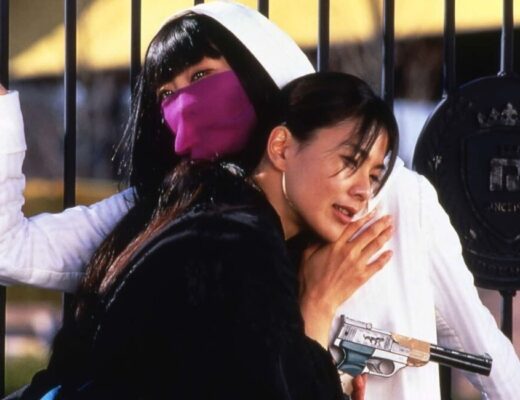“And during the few moments that we have left, we want to talk right down to earth, in a language that everybody here can easily understand.” These recorded words from Malcolm X — an excerpt from his 1963 speech “Message to the Grassroots” — followed by guitarist Vernon Reid’s thunderous riff driving the song “Cult of Personality,” form the opening moments of Vivid, the 1988 debut album by New York hard rock band Living Colour. The genre was fairly ubiquitous on pop radio airwaves in the late ‘80s; this, after all, was the era of hair metal, when one could see and hear pretty outrageous things from such artists, but surely no hard rock group in 1988 other than Living Colour were including soundbites from Malcolm X speeches in their songs. (Interestingly, “Cult of Personality” was originally intended to kick off with a clip from Martin Luther King, Jr.’s “I Have a Dream” speech, but the rights were too expensive to license from King’s estate.) And probably no other band working in this mode were singing about racism and gentrification, either. These were certainly elements that made Living Colour stand out from the pack, but their most obvious distinction was that they were a group of Black men playing loud, raucous, and undeniably compelling rock and roll. Not only that, but they also seamlessly incorporated other musical genres into their distinctive sound: funk, punk, jazz, country, R&B, hip hop. Living Colour’s eclecticism, then, within the narrowly blinkered racism of the music industry, was considered a liability rather than the great asset that it was, causing the band to initially suffer years of rejections by numerous record labels.
In the end, it took a co-sign from none other than Mick Jagger of the Rolling Stones to get the ball rolling for Living Colour’s recording career. In 1987, Jagger was in New York recording his sophomore solo effort Primitive Cool, which Reid was invited to play on. Jagger had heard the buzz about Living Colour and expressed his interest in seeing them live. Reid and lead vocalist Corey Glover — who’d tagged along to watch the recording sessions — invited Jagger to a gig at CBGBs, the famous punk/new wave venue where Living Colour frequently performed. Jagger indeed came to the show, bringing with him guitar legend Jeff Beck. Jagger obviously liked what he heard, because shortly afterward, he brought the band to his recording studio, where he produced two tracks that would eventually be included on Vivid: the jaunty Day-Glo pop confection “Glamour Boys” and the politically charged “Which Way to America?” Jagger also enlisted his engineer Ed Stasium — who’d previously worked with Talking Heads and Ramones — to produce the rest of Vivid. Largely on the strength of Jagger’s endorsement, Living Colour at long last landed a record deal with Epic, who would release Vivid in May of 1988.
“Cult of Personality,” the album’s second single released in the US, is Living Colour’s highest-charting track (peaking at #13 on the Hot 100) and remains the band’s best-known song. It embodies their politically inclined aesthetics, as well as their utterly accomplished musicianship, the tight rhythm section of drummer Will Calhoun and bassist Muzz Skillings providing a solid foundation for Reid’s avant jazz-inflected guitar pyrotechnics. The music was as heavy as anything by Led Zeppelin or Metallica, but Glover’s vocals weren’t your typical metal bellowing, but instead deeply soulful, R&B-style singing, which made for an absolutely killer combination. The effect is powerful enough that it almost makes one overlook the song’s muddled messaging, which decries hero worship and manipulation of the masses by the powerful, but seems to draw no distinction between beloved figures such as JFK and Gandhi and violent despots like Stalin and Mussolini. The lyrics also vacillate awkwardly between first-person address and omniscient commentary. At one point, Glover sneers, “I exploit you, still you love me / I tell you one and one makes three / Oh, I’m the cult of personality.” Later, however, he observes, “When a leader speaks, that leader dies / He won’t have to follow me / Only you can set you free.” Still, despite its confused politics, this song connected with many listeners and established Living Colour as a musical force to be seriously reckoned with.
Fortunately, Vivid contains other songs that express the band’s concern much more cogently, none more so than in the album’s strongest track “Open Letter (to a Landlord),” co-written by Reid and poet Tracie Morris, a searing indictment of gentrification and the profit motive behind this practice, which states its thesis right at the top: “Now you can tear a building down / But you can’t erase a memory / These houses may look all run-down / But they have a value you can’t see.” A rousing protest song of the highest order, this track appropriately ends with a collective call to arms: “You’ve got to fight for your neighborhood.” And so, Living Colour, with Vivid and its even better 1990 follow-up Time’s Up, was an influential and empowering group by its very existence, a powerful rebuke of the increasingly whitewashed, racially segregated and exclusionary rock music landscape, proving that a Black rock band was no anomaly or novelty, but the truest heirs to such inventors of the musical form as Chuck Berry, Little Richard, Fats Domino, Big Mama Thornton, and so many others.
Part of Kicking the Canon – The Album Canon.







